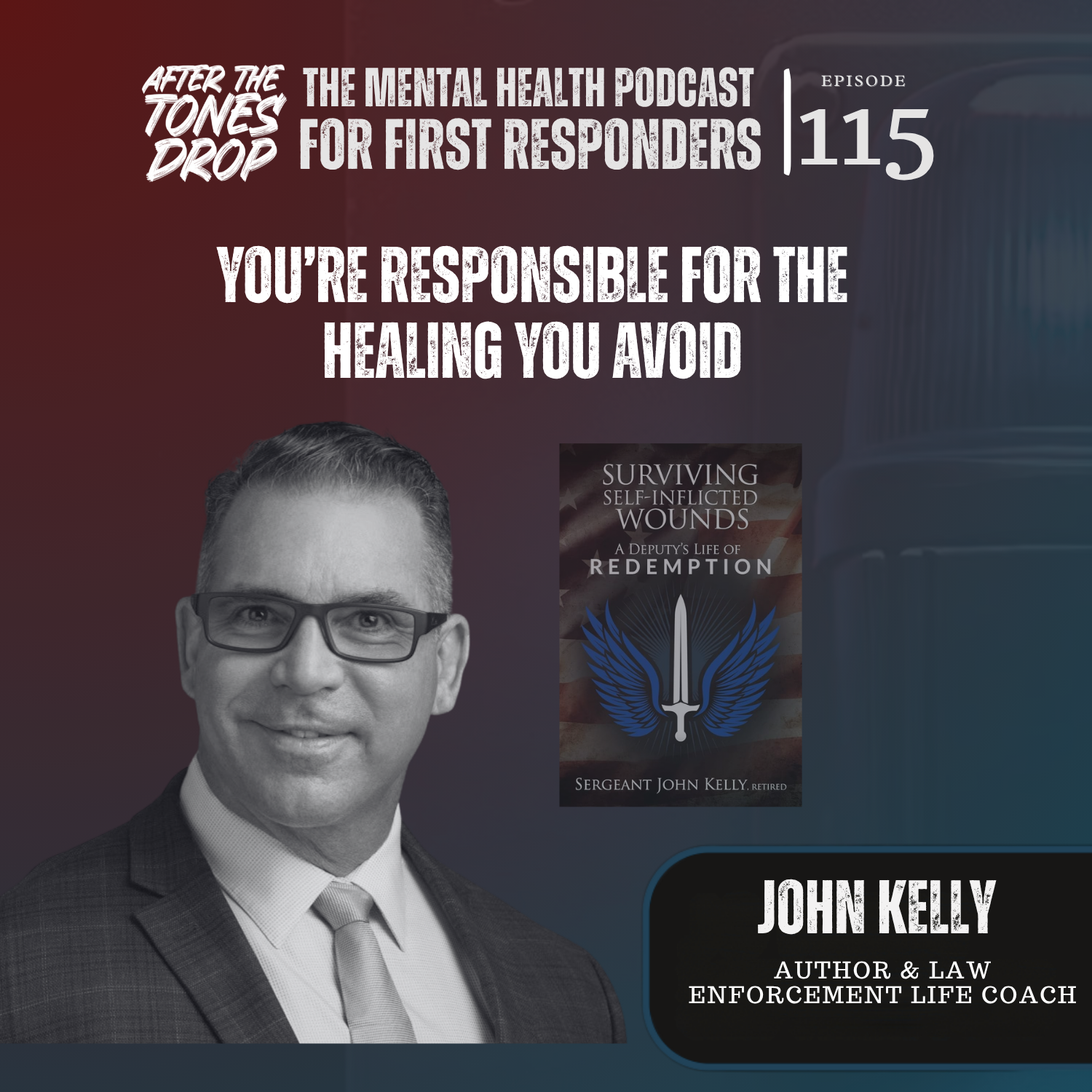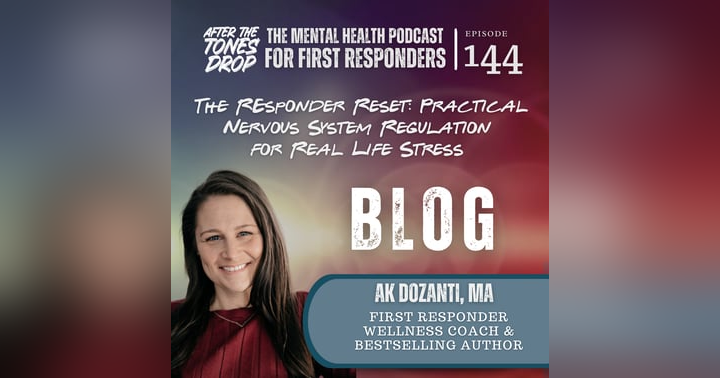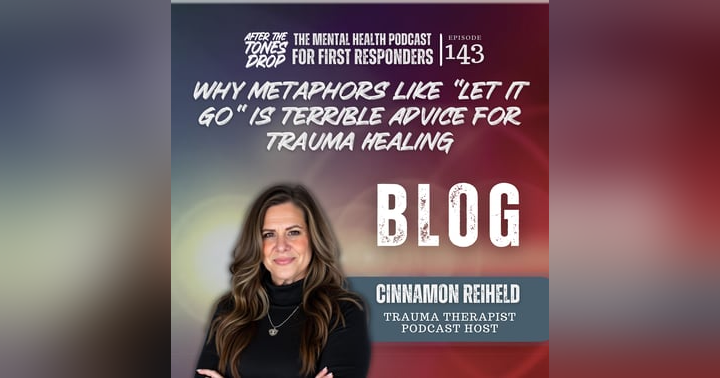Seeking Help Isn’t Weakness. Waiting Until You Crash Is.

A Powerful Conversation With Law Enforcement Life Coach John Kelly Episode 115
by Cinnamon Reiheld, Trauma Therapist & Host of After the Tones Drop
Would You Die for Your Family… or Actually Live for Them?
We hear it a lot in this line of work:
“I’d die for my family in a heartbeat.”
But what if the real challenge isn’t dying?
What if it’s choosing to live—fully, presently, and honestly—every single day?
That’s the gut-punch question former deputy and wellness coach John Kelly dropped during our conversation on After the Tones Drop. And once he said it, I couldn’t un-hear it. Because for so many first responders, showing up in a crisis feels natural. Showing up for yourself, your spouse, or your kids on a random Tuesday afternoon? That’s where it gets uncomfortable.
Accountability Isn’t a Breakdown—It’s a Breakthrough
John doesn't sugarcoat his story. He walked through addiction, infidelity, and emotional collapse. He was, by his own admission, in freefall—until someone close to him finally said, “This isn’t who you are. So what are you going to do about it?” That conversation changed his life.
What I love about John’s perspective is that he doesn’t glorify rock bottom. He doesn’t wrap his recovery in perfection. He reminds us that accountability is brutal... but it’s also the doorway to a better version of yourself. And that door? It’s always open, but it doesn’t wait forever.
Healing Might Not Be Cheered On at First (Do It Anyway)
Here’s something most people don’t say out loud: sometimes your healing pisses people off. Especially if they’ve been hurt by your past behavior. In this episode, John opens up about the impact his choices had on his wife—and how even as he got better, she still had to deal with the wreckage.
Healing is layered. And real change means you don’t just apologize, you rebuild trust with action. That takes time. It takes uncomfortable conversations. And it takes sticking with the work long after the spotlight’s off you.
You Can’t Save Everyone Else If You’re Losing Yourself
John and I talked about a hard truth many in public safety live with: the skill of compartmentalization. It helps you move through trauma on shift. But it becomes dangerous when it morphs into suppression—when your feelings have nowhere to go, and your family doesn’t even know you’re hurting.
John challenges first responders to stop waiting for their department or admin to support their mental health and start supporting themselves. He’s right. We’ve waited long enough. The help might not come from inside the system—but it can start with a single step outside it.
Final Thoughts (and Your Next Step)
You don’t have to wait until everything falls apart. You can choose to check in before you check out.
👉 Start by listening to this conversation with John Kelly. It’s honest, gritty, and full of lived wisdom.
🎧 After the Tones Drop, Episode 115
And if any part of this hit a little too close to home—if you’ve been sliding, suppressing, or silently disappearing from your own life—reach out.
I’m here.
Therapy is here.
You don’t have to unravel alone.
Learn more at about Therapy with Cinnamon at Whole House
Reach John Kelly at https://www.lawenforcementlifecoach.com/
Because your mental health is not optional. And you deserve better than survival, and so does your family.



